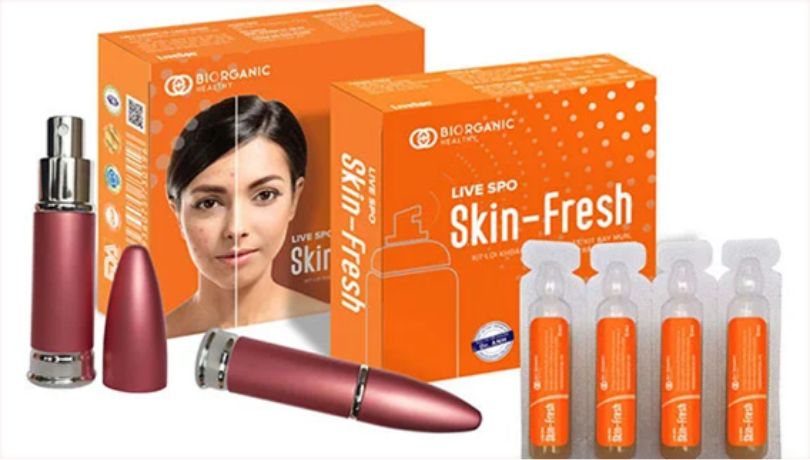Product
Beauty
Contains probiotic spores of the following strains: Bacillus clausii, Bacillus subtilis, Bacillus coagulans.
Indications
- Soothes acne and instantly reduces facial irritation
- Eliminates harmful bacteria, enhances beneficial bacteria on the skin, thereby, balancing the skin microflora and making the skin brighter and healthier
- Effective treatment for pimple, acne, inflammatory acne and pustule
- Increases antibodies to regenerate damaged skin, prevents the formation of acne-caused scars and recurrence of acne

Associated publications
Savitskaya IS, Shokatayeva DH, Kistaubayeva AS, Ignatova LV, Digel IE.
Antimicrobial and wound healing properties of a bacterial cellulose based material containing B. subtilis cells.
Heliyon. 2019;5(10):e02592.
Yan L, Liu G, Zhao B, Pang B, Wu W, Ai C, et al.
Novel Biomedical Functions of Surfactin A from Bacillus subtilis in Wound Healing Promotion and Scar Inhibition.
J Agric Food Chem. 2020;68(26):6987-97.
Shahsafi M.
The Effects of Bacillus subtilis Probiotic on Cutaneous Wound Healing in Rats.
Novelty in Biomedicine. 2017;5(1):43-7.
Fijan S, Frauwallner A, Langerholc T, Krebs B, ter Haar JA, Heschl A, et al.
Efficacy of Using Probiotics with Antagonistic Activity against Pathogens of Wound Infections: An Integrative Review of Literature.
BioMed Research International. 2019;2019:7585486.
Yan L, Liu G, Wang X, Jiang C, Shao D, Shi J, editors.
Identification and characterization of lipopeptides as a potential wound healing agent produced by Bacillus subtilis.
BIBE 2019; The Third International Conference on Biological Information and Biomedical Engineering; 2019 20-22 June 2019.
Ripert G, Racedo SM, Elie AM, Jacquot C, Bressollier P, Urdaci MC.
Secreted Compounds of the Probiotic Bacillus clausii Strain O/C Inhibit the Cytotoxic Effects Induced by Clostridium difficile and Bacillus cereus Toxins.
Antimicrob Agents Chemother. 2016;60(6):3445-54.
Giri SS, Ryu E, Park SC.
Characterization of the antioxidant and anti-inflammatory properties of a polysaccharide-based bioflocculant from Bacillus subtilis F9.
Microb Pathog. 2019;136:103642.
Paynich ML, Jones-Burrage SE, Knight KL.
Exopolysaccharide from Bacillus subtilis Induces Anti-Inflammatory M2 Macrophages That Prevent T Cell-Mediated Disease.
J Immunol. 2017;198(7):2689-98.
